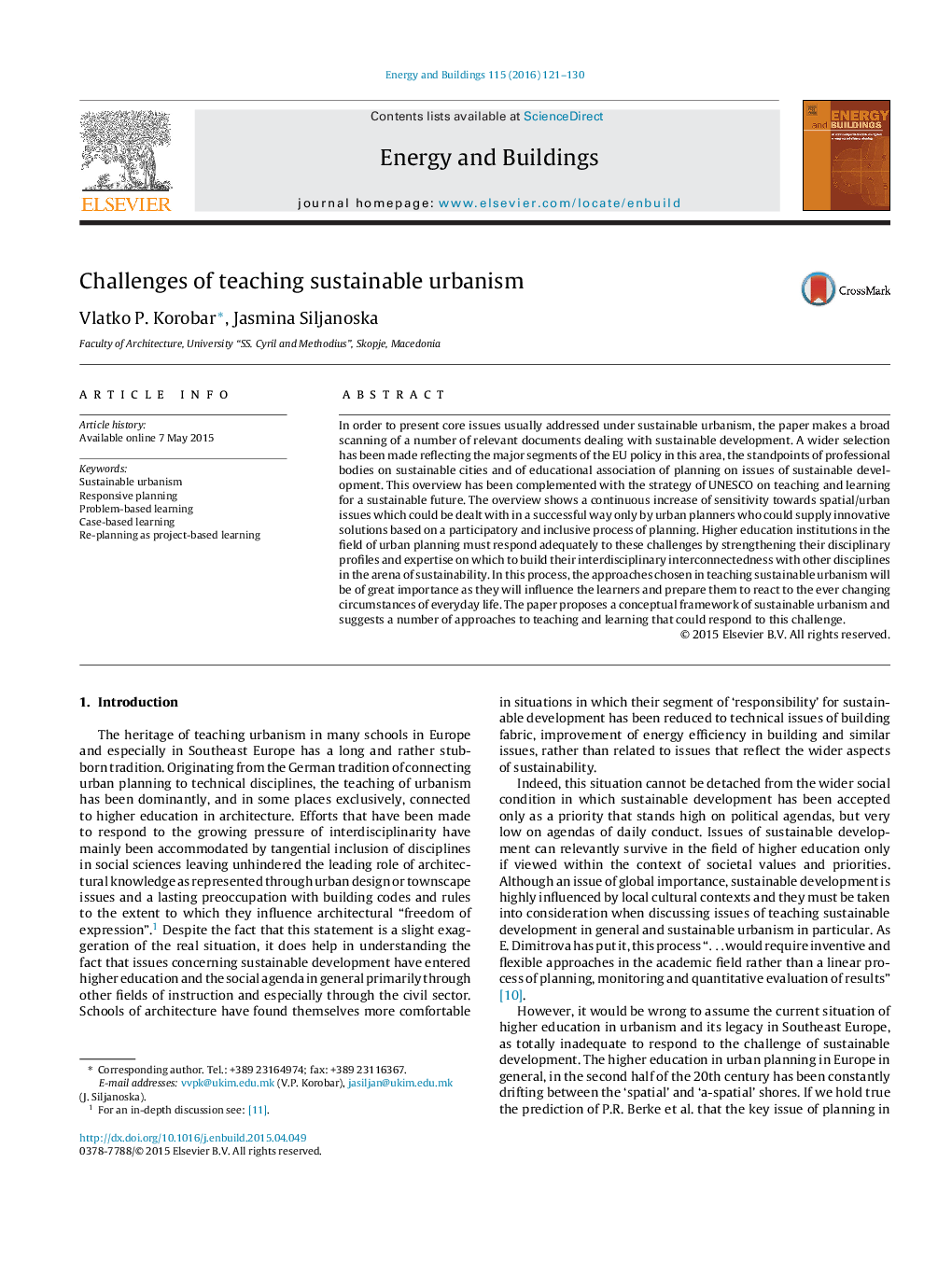| Article ID | Journal | Published Year | Pages | File Type |
|---|---|---|---|---|
| 262248 | Energy and Buildings | 2016 | 10 Pages |
•Conceptual framework for sustainable urbanism proposed with livability as anchor point.•Comprehensive list of relevant teaching and learning strategies has been suggested.•Problem-based, case-based and re-planning as project-based learning as discipline sensitive methods.
In order to present core issues usually addressed under sustainable urbanism, the paper makes a broad scanning of a number of relevant documents dealing with sustainable development. A wider selection has been made reflecting the major segments of the EU policy in this area, the standpoints of professional bodies on sustainable cities and of educational association of planning on issues of sustainable development. This overview has been complemented with the strategy of UNESCO on teaching and learning for a sustainable future. The overview shows a continuous increase of sensitivity towards spatial/urban issues which could be dealt with in a successful way only by urban planners who could supply innovative solutions based on a participatory and inclusive process of planning. Higher education institutions in the field of urban planning must respond adequately to these challenges by strengthening their disciplinary profiles and expertise on which to build their interdisciplinary interconnectedness with other disciplines in the arena of sustainability. In this process, the approaches chosen in teaching sustainable urbanism will be of great importance as they will influence the learners and prepare them to react to the ever changing circumstances of everyday life. The paper proposes a conceptual framework of sustainable urbanism and suggests a number of approaches to teaching and learning that could respond to this challenge.
